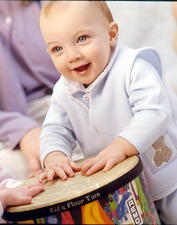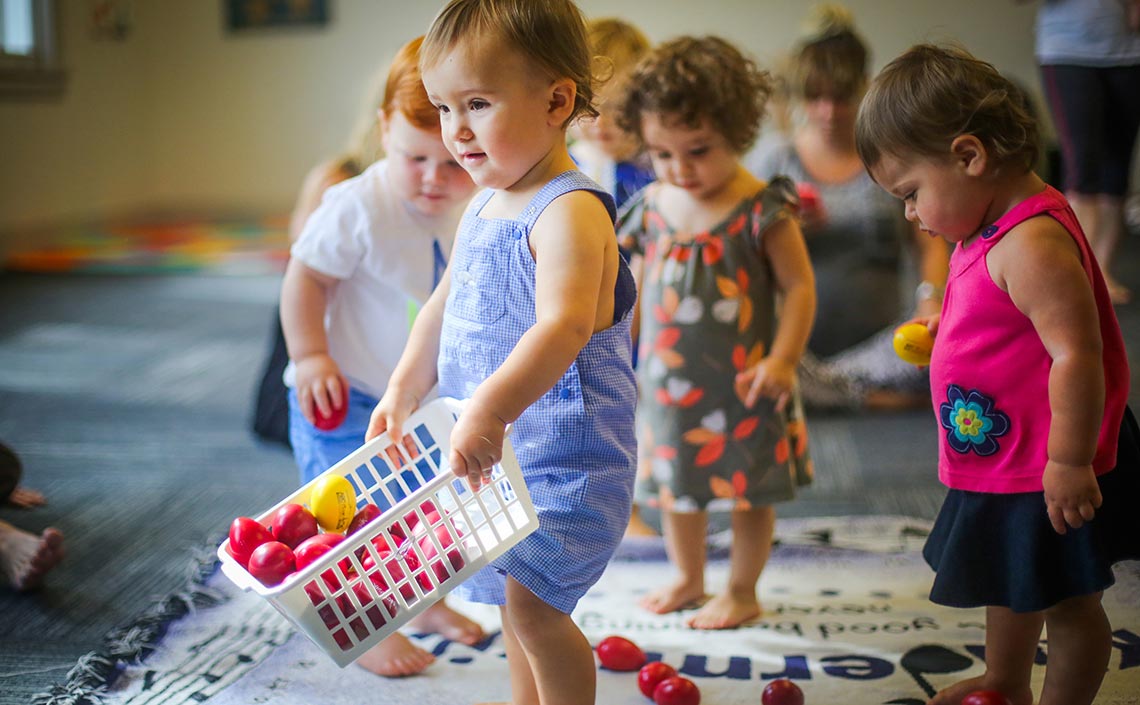
The first, most important question is, are all children musical? The answer is a resounding yes! The building blocks of music are within us all from birth. Watch a baby shake a rattle or bang a spoon, intent on the sound they are producing. Toddlers dip and wriggle, responding to music they hear, and explore with delight the entire range of their vocalizations, from deep growls to siren squeals. The great composer, Rossini, said, "the language of music is common to all generations and nations; it is understood by everybody, since it is understood with the heart." So why do so many of us as adults assume that music is somehow the special providence of a few gifted individuals, rather than the birthright of all?
Part of the reason lies in our own understanding of musical ability and how it develops. In early childhood, music and language development mirror each other. We don't expect baby to begin by speaking full, clear sentences; we hang on every coo, every babbled syllable, and proclaim, "she's trying so hard to talk!" We respond, and baby is rewarded for their efforts, and encouraged to continue. Babies naturally love the facial expressions of a parent, the inflection of their voice and the rhythmic repetition of speech. These elements soothe, stimulate and entertain; but most importantly, they facilitate a bond between you and your child.
The preschooler, picking up a book and finding familiar letters or creating a story on the spot from the pictures, is cuddled, read to, and hears their proud parent tell friends and family "he really loves to read!" Which of us would casually laugh and say, in a child's hearing, "Well, I guess he'll just never learn to read; I sure can't"? Music has its beginnings in musical 'babble' as well- clanging pots and pans with a spoon to discover beat, for instance, or singing fragments of words or melody before developing a reliable sense of pitch.
Personal musical expression, in our culture, has become separated from our daily lives. What does it teach our children, if every time we want music for them we reach for a video or CD? We risk sending the message that only that is 'real music', not achievable by a small person without benefit of a backup band, flashy costumes, and a recording contract. But why is it so important to encourage musical expression in babies and young children? Music has benefits that reach far beyond performance. Beat, the steady, underlying pulse at music's heart, helps children coordinate movement. Whether clapping, walking, bouncing a ball, or cutting with scissors, a sense of steady beat will assist a child in moving with grace and confidence. The rhythms and sounds of sung language aid in developing speech patterns, fluidity, and expressiveness. Patterns in music and movement have been shown in studies to develop neural connections that can later be used to understand pattern and sequence in music.
Today we recognize the benefits of early learning; music, with its impact on so many parts of development and its innate appeal to young children, should be a natural and joyous element of every child's life, beginning as early as possible. By overcoming our own notions of who 'ought' to make music, we can bring to our children the gift of a lifetime of confidence in their own ability to learn and create- a gift that belongs to every child.
If you are interested in joining your child into a music group Kindermusik have classes held at the Menai Community Centre for children from newborns through to 5 years of age. Classes are designed to be developmentally appropriate for each age grouping. For more information contact Shirley on 0402 856 109. www.kindermusikwithshirley.com

